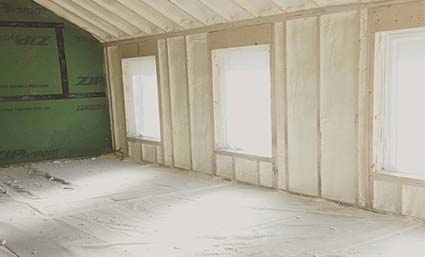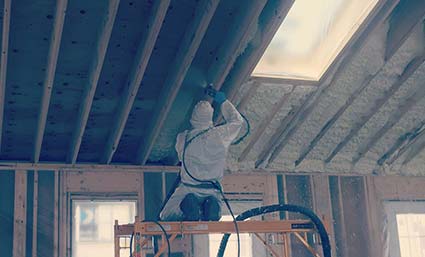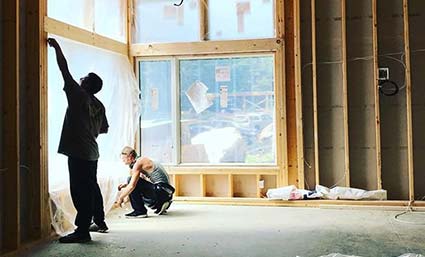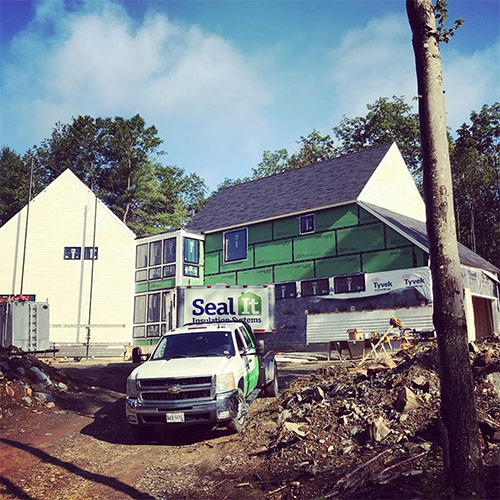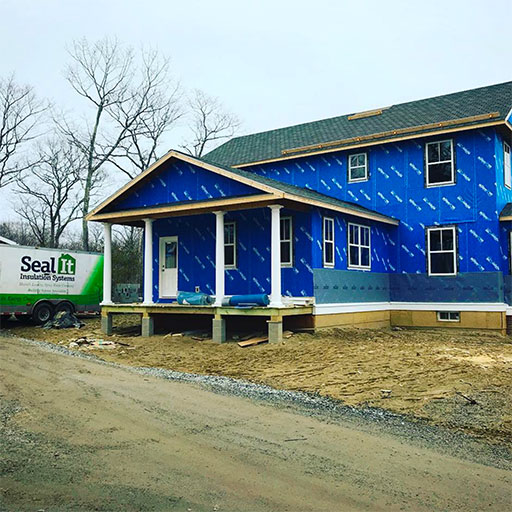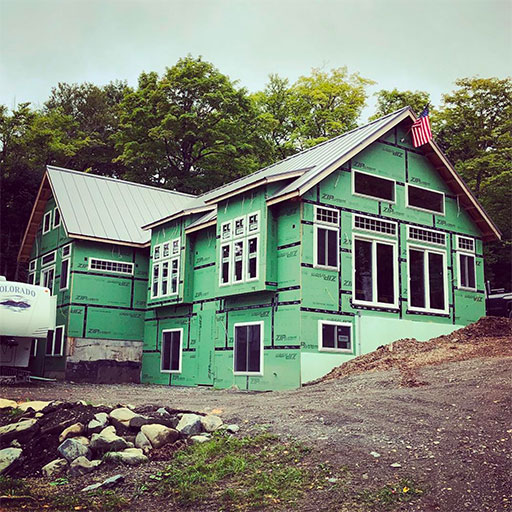Maine’s diverse climate – ranging from warm summers to bitterly cold winters – presents unique challenges for commercial building owners. Ensuring your building is insulated correctly isn’t just about comfort; it’s a critical factor in energy efficiency and cost savings.
This post explores the best insulation methods, with a spotlight on spray foam insulation, tailored for the needs of Maine commercial buildings.
Understanding Commercial Building Insulation
Insulation acts as a barrier to heat flow, essential in maintaining a comfortable, energy-efficient environment inside your commercial property. Given the complexity and size of commercial structures, choosing the right insulation solution is paramount.
Unlike residential spaces, commercial buildings often have larger open spaces and varying occupancy, necessitating a more robust approach to insulation.
Types of Insulation for Commercial Buildings
In order to achieve energy efficiency and optimal thermal comfort in commercial buildings, various insulation materials are available, each with its own set of characteristics and benefits.
Among these, fiberglass, cellulose, and rigid foam stand out as common choices, yet spray foam insulation distinguish themselves as a particularly effective option for several compelling reasons.
- Fiberglass Insulation: Comprised of fine glass fibers, fiberglass is a traditional insulation material that is cost-effective and has a moderate R-value (a measure of thermal resistance). It comes in batts and rolls, which fit between wall studs and ceiling joists.
However, fiberglass can sag over time, reducing its effectiveness, and requires protective gear during installation due to its irritant fibers. - Cellulose Insulation: Made from recycled paper products, cellulose is an eco-friendly option treated with fire retardants. It’s typically blown into place, making it suitable for retrofitting older buildings and filling irregular spaces.
While it provides good thermal performance, it can settle over time, potentially decreasing its insulating effectiveness. Additionally, it may absorb moisture, which can lead to mold issues. - Rigid Foam Insulation: Available in large sheets that can be cut to size, rigid foam offers higher R-values per inch than fiberglass or cellulose, making it a good choice for exterior wall sheathing and in areas where space is at a premium. It’s also moisture-resistant, adding an extra layer of protection against water damage.
However, the installation process can be more labor-intensive, and the costs are generally higher than those of fiberglass and cellulose. - Spray Foam Insulation: Spray foam stands apart due to its exceptional air sealing qualities and high R-value, which significantly improve a building’s energy efficiency. It expands upon application, filling even the smallest cracks and gaps, which helps prevent air and moisture infiltration. This ability not only enhances thermal insulation but also contributes to the structural integrity of the building.
Spray foam insulation can be more expensive upfront but offers substantial long-term savings on energy bills. It comes in two main types: open-cell, which is lighter and more flexible, and closed-cell, which is denser and adds to the building’s rigidity.
Each insulation type has its advantages and potential drawbacks, making the selection process crucial to align with specific building needs, climate considerations, and budget constraints. Spray foam insulation, with its superior air-sealing capability and excellent thermal resistance, presents a compelling option for those prioritizing energy efficiency and long-term performance in their commercial buildings.
Why Spray Foam Insulation Stands Out
Spray foam insulation comes in two main types: open-cell and closed-cell, each serving different needs but both offering exceptional benefits:
- Energy Efficiency and Cost Savings: By creating an airtight seal, spray foam insulation significantly reduces energy bills, a boon for any commercial establishment in Maine’s fluctuating climate.
- Durability and Longevity: Unlike other materials that may sag or settle over time, spray foam maintains its structure, providing lasting insulation.
- Moisture Barrier Capabilities: In a state like Maine, where dampness can be an issue, spray foam’s ability to resist water can protect your building from mold and mildew.
- Ease of Application: Spray foam can easily be applied to irregular shapes and hard-to-reach areas, ensuring complete coverage.
4 Key Considerations When Choosing Insulation for Your Commercial Building
- Size and Layout Considerations: The building’s size and architectural complexity necessitate tailored insulation solutions for effective temperature control and energy efficiency.
- Local Climate Influence: Insulation choices are significantly impacted by the building’s geographical location, with colder climates requiring higher R-value materials for heat retention and warmer climates needing insulation that blocks heat ingress.
- Initial Costs vs. Long-Term Savings: While upfront expense is important, the focus should also be on the potential for reduced energy bills and tax incentives for eco-friendly material use.
- Professional Assessment: Engaging experienced contractors or energy auditors for a professional assessment can offer:
- A detailed analysis of the building’s current energy performance.
- Identification of energy loss areas.
- Recommendations for an insulation strategy that meets specific needs, budget constraints, and sustainability goals.
- Ensures an optimal balance between initial investment and long-term benefits in savings and comfort.
If you’re considering insulating or re-insulating your commercial property, we invite you to reach out to our team of experts. We specialize in spray foam insulation for commercial buildings and can help you navigate the process from start to finish.
If you’re ready to learn whether your commercial building is ready for insulation, get a free quote from Seal It Insulation Systems today!

